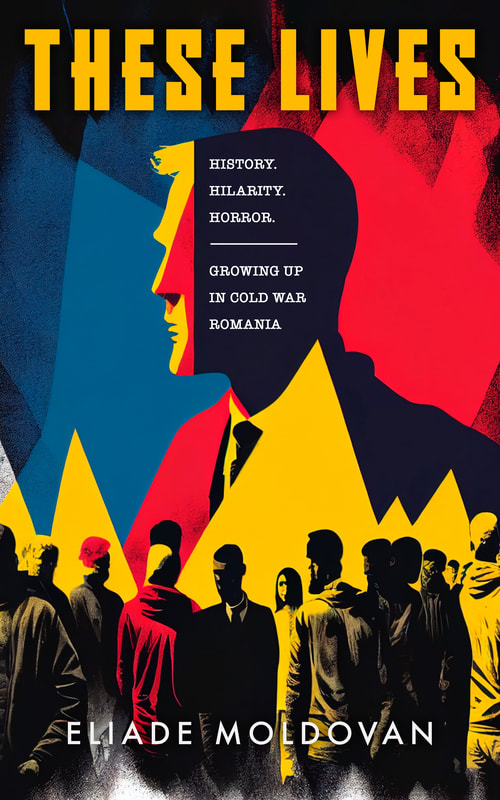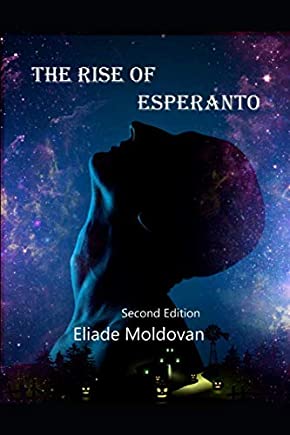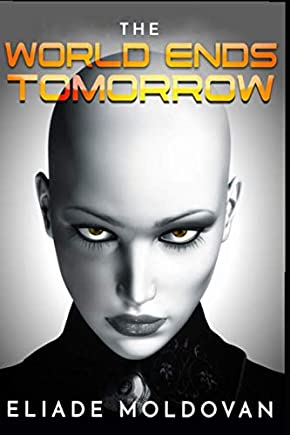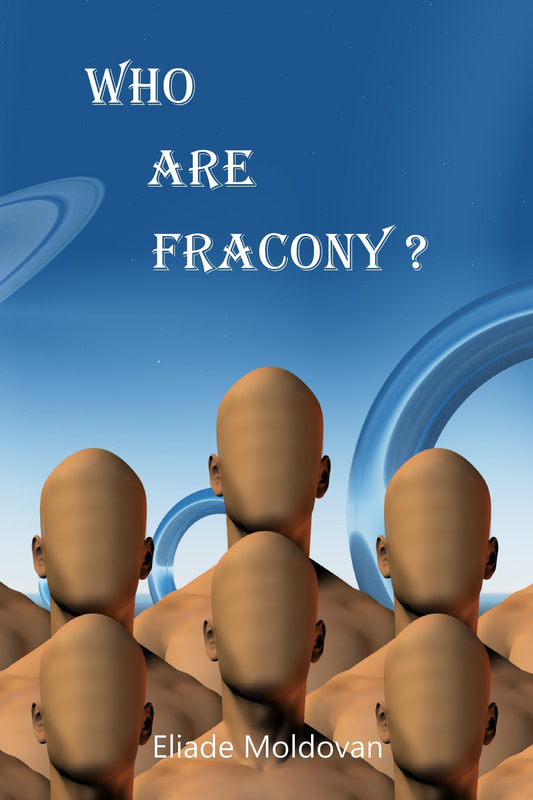|
I was an adult, over 40, when I realized Christianity believed Jesus is a god, the concept of the Trinity, 3 gods in one: the Father, the Son, and the Holy Spirit. That was because religion was quasi-banned in communist Romania, and my grandmothers (my mentors for religious matters) did not want to go to that sophistication and explain it. So, what was in my head was that Jesus was the son of God, but a man.
That was a huge surprise. If Jesus is a God who walked the Earth 2000 years ago, why did He not write his message in a book or carve it in stone that no one could hide or destroy? For everybody to see it? He could if indeed he was a God. My logical explanation was that He did not want to leave proof of his goodness or was not a god. I was crushed. So, I read about the Trinity and found that the concept did not exist in early Christianity but became the Christian dogma only after the Council of Nicaea in the 4th century, like a business decision. I have already read the Bible, and I have reread it. And I found this in Mark 10:18: And Jesus said to him, “Why do you call me good? No one is good except God alone.” I remember this because it hit me in the groin, kind of like Jesus saying He is not good and he is a different entity than God the Father. Whatever significance you assign to “good,” “not good” is synonymous with not being perfect, so Jesus is not a god. And there are so many other places I do not remember now where Jesus suggests he is not a god. Or places raising questions like how can a god die? I was not ready yet to deny faith. I only concluded that the Bible translation is not accurate and should not be fully trusted, or the church wanted to portray Jesus as God for a tricky agenda of some sort. Where am I leading with this? Maybe I should have mentioned at the beginning of my series of articles that I am now an agnostic: Maybe there is something out there but I do not know what, and no religion could explain it. I will explain my transformation in the next articles.
0 Comments
This question troubled my mind since I was a teen. Now I am retired and have my theory, which has developed in my mind my whole life. When a kid, in my grandma’s settlement, the villagers associated any technological advance with “the devil’s doing.” TVs, phones, radio, landing on the moon- all those things puzzled the people, but strangely enough, they admired and used them. They talked about “devil’s doing” with a smile. Then, after reading the Bible, I realized that god opposes progress. He punished Adam and Eve for eating from the Tree of Knowledge. Later, when people wanted to build the Babel Tower to reach the sky, god mixed their languages, so they could not communicate to finish the work. Even if they are allegories, I could not miss their meaning. What is the relation with the truth? For science, the absolute truth does not exist. When trying to find the absolute truth using math, all science can see is a space where the truth exists but cannot put its finger on it. The main reason is that everything moves (called entropy) in our Universe, and we may find the absolute truth only if the Universe freezes, but then we do not have the tools to find it. There are other examples, and for those interested, I would explain at the end of this article how science concepts that contradict each other all have practical applications that work. So, only relative truth exists, related to a set of axioms that we develop until we obtain something that works. The absolute truth exists for religion; it is god’s existence. The problem is that there are many religions on earth, each with its god, gods, or concepts. So, the truth is relative to whom you ask. This is a big problem because one’s belief negate the other’s. Conclusion? For science, it is no problem accepting that only relative truth exists, while religion rejecting this concept (cannot be otherwise) leads to deadly confrontations. Here is how science could work with conflicting concepts. The math we learned in school is based on the five Euclidian axioms. The first for are so simple that no one contests them. Example is: if we have 2 points in the Univers, we can draw a line from one to the other. Only axion 5 created headaches for the mathematicians. Axiom 5: if we have a line L and a point P outside it, we can draw one and only one line passing through P and is parallel to L. In the 18th century, Lobachevsky changed the axiom 5, saying that the Universe is more complex than we can draw on paper, and we can draw more than one line passing through P and parallel to L. He developed a math based on it. In the 19th century, Riemann said no line could be drawn through P and parallel to L. He developed a math based on it. The 3 maths (Euclid, Lobachevsky, and Riemann) contradict each other at the base, but all are true. With Euclidian math, humankind built buildings, trains, airplanes, and everything we see around us. So Euclidian math must be true. However, the other two maths are the bases for the theory of relativity and quantum mechanics. Based on these theories, humankind developed atomic energy, the internet, and mobile technology. They are true as well. So, I had to choose. Either believe the absolute truth as spelled by my lovely grandmothers and hate all denying it, or accept science where different and conflicting concepts are fighting at the debate level. I explained in my previous blogs that my religion teachers were my grandmothers.
From my father’s end, Grandmother did not read books. She could if she wanted, but with difficulty and did not bother. All she knew was what the priest explained in the church, and she went to the church in her village once a week. I doubt she paid too much attention to what she heard there. From my mother’s end, Grandmother read the Bible and other holy books every day, and she read every time she had a few minutes to do something. My first big question to them was in 1968 when the Americans landed on the moon. My father’s mother refused to answer. I insisted. I knew everyone in the village said it was a lie since the moon is holy, and God would not allow it. But Grandma was silent. I said, “I will ask you as many times as needed until you answer if the Americans landed on the moon, YES, or NO?” She took in her hand the portable radio and said: “This thingie is linked to nothing, and I hear in it music from 400 km away, from Bucharest.” “So what is your answer?” I asked. “If the damn Americans can do this (the radio was not American, thou),” she said, raising the portable even higher, “they may go to the moon, too. But I do not know that, my dear.” What did my mother’s mother say? “The moon is holy, as the Bible says. And I do not know if the Americans went there. But if God allows it and lets them know how to do it, they can go.” I regret to this day that I did not ask a priest. But the idea in my mind was that if the Bible cannot foresee or predict in any way what people can achieve, something is missing or wrong. My next post would be about the second question that tormented my mind. Think of it: my grandparents were deeply religious and taught us, the kids, the values of Christian values. But the way they talked somewhat scared me: eternal punishment more than anything else. It was Romania in the ’60s and ’70s when the atheist government had all kinds of leverage to promote their agenda. My parents were silent, maybe because of fear (another kind of fear than mine), or they had doubts about the subject. But, as far as they could go, they taught us that the communist regime is wrong about many things. They spoke to us with care, outlining that we should not talk at school about anything we hear at home. At school, religion was a taboo subject. So, all I heard was my grandparents’ voice. And at a young age, there are a lot of temptations. There were no drugs in Romania, but parties and drinking were plenty. I was the best in my class; I always liked reading and could excel in conversations. I did not have problems being invited to parties. But it all stopped here. All these teachings, like sex only after marriage (actually anything sex-related), avoiding drinking since you may lose your reasoning, dressing decently, talking nice, absorbing the bullies’ bad words by replying nice, make you a nice guy. Still, I tell you, you miss your youth big time. I did not have a drink until my military service (mandatory back then, after high school). I had colleagues from the high class, like from the secret service families or high-ranking army officers. They had a room for parties (duh, communist egalitarism). One day, when they found out that I had never had a drink, they offered me a very special one: whiskey from America! I drank the whole glass in one shot. It was cooking oil. Well, youth was the time when I started having questions about the stories in the Bible. I missed too much not to think something was wrong or the teachings based on the Bible were misinterpreted. How important is religion? Or maybe not?
Some people claim religion is not important because they dismiss it. I remind them that they are surrounded by others saying otherwise. And they have to deal with it. What about me? My grandmothers were very vocal about believing in God and Christ as a kid. My parents were mostly silent. Kids are like empty books, waiting for the family to write in them. And whatever a kid hears, believes it. No big philosophy here. You trust those feeding you, caring for you, and overwhelming you with love. Kids have no chance of an option. When I was about four or five, I learned that everybody dies, but my grandmothers assured me that we live before death, in God. That was a good and reassuring thing. But slowly, I learned about the eternal punishment if God does not want to take you into his garden. And the nightmare began. As I learned later, Hell as told in the New Testament, was invented by Christianity. Some apologists are saying that Sheol and Gehenna in the Old Testament are the precursors of Hell, but I read enough to find out it is not so. Going back to my childhood, I was scared to death not to do something wrong to make God angry. Did it shield me from doing bad things? Maybe. But what it took out from me, I see now as a missed childhood. What about my young years? About that in the next post. |
AuthorWrite something about yourself. No need to be fancy, just an overview. ArchivesCategories |





 RSS Feed
RSS Feed
